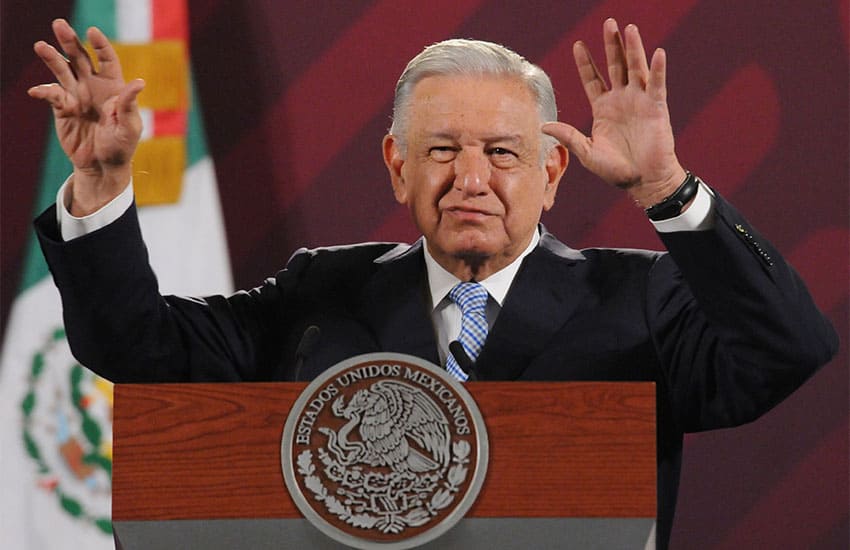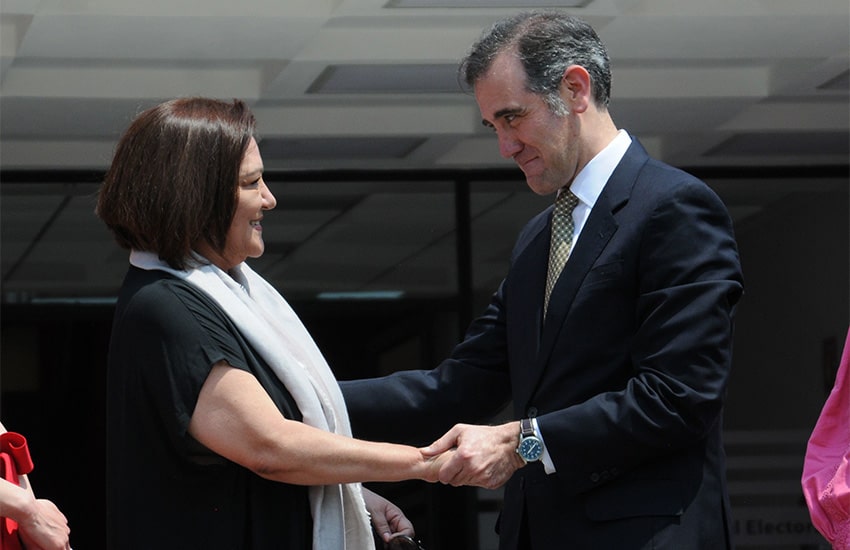Supreme Court strikes down sweeping electoral reform law

Six weeks after invalidating the first part of the federal government’s controversial electoral reform package, the Supreme Court (SCJN) has struck down the second more substantive section.
As was the case with the first part of the so-called Plan B electoral reform package, nine of 11 justices concluded that the approval of the second section by federal Congress violated legislative procedure. The ruling Morena party and its allies have a majority in both the Chamber of Deputies and the Senate, ensuring the legislation’s passage through Congress.
The SCJN ruled that reforms to three laws and a proposal to create another one were rushed through the lower house of Congress without giving lawmakers adequate time or opportunity to understand and debate the legislation.
“The Chamber of Deputies never gave reasons to justify the urgent process,” Justice Javier Laynez said during a court session on Thursday.
“… Lawmakers didn’t have the opportunity to become familiar with the proposals because they weren’t published or distributed with the advance notice required by the rules of the Chamber of Deputies. Most importantly, they didn’t have a reasonable period to become familiar with what they were voting on as, in total, there were reforms to more than 510 articles,” said Laynez, who proposed the abrogation of the laws to his colleagues.
“It’s clear and evident that the principle of democratic deliberation was violated,” he said in reference to deputies’ approval of the laws in just four hours.

The justice also cited other legislative irregularities related to the second part of the reform package, including an order from President López Obrador to remove a so-called “eternal life” clause in one of the proposed laws, which would have allowed major parties to transfer votes to their smaller coalition partners to avoid their possible de-registration due to a lack of support at elections.
Justice Yasmín Esquivel and Justice Loretta Ortiz, both of whom were nominated by López Obrador, voted against repealing the second section of the reform package.
Esquivel noted that the laws received sufficient support to pass Congress and consequently argued that a “democratic exercise” had taken place. She accused her fellow justices of violating “the principle of the separation of powers,” and charged that the court’s consideration of the case was “superficial.”
The application of the laws struck down by the SCJN on Thursday was suspended by the court in March just weeks after they were promulgated by López Obrador. Laynez said at the time that the suspension was necessary to protect democracy and voters’ rights.
#SCJN #Mexico #ULTIMAHORA #TwisterPolitico pic.twitter.com/GoUOJlmC0j
— Diana Bautista Benmar (@DianaLo91297065) June 22, 2023
The ruling is seen as a win by many Mexicans opposed to what it saw as the law’s attack on democracy and the INE. This meme circulating online Thursday marked with X’s Justices Yasmín Esquivel and Loretta Ortiz, the sole opposing voices. (Twitter)
Approved by the Senate in late February, the second part of the reform package slashed the budget of the National Electoral Institute (INE), limited the powers of the Federal Electoral Tribunal and made changes to key dates related to electoral processes in Mexico, among other effects.
To demonstrate their support for the INE in the face of what they considered an unwarranted attack on and dangerous weakening of the institute, hundreds of thousands of people took to the streets across Mexico shortly after the second section of the package was approved. The now-annulled electoral reform laws are collectively known as Plan B as a more ambitious constitutional bill aimed at overhauling Mexico’s electoral system failed to attract the two-thirds congressional support it required.
With the Supreme Court having now invalidated the entirety of the reform package, the INE will recover powers it lost or which were diminished during the brief period that the legislation was in effect. The institute’s previous capacity to sanction politicians who violate electoral laws will be restored, its autonomy won’t be curtailed, its funding won’t be cut and it will be able to employee more people and keep regional offices open.
The first part of the reform package involved changes to the General Law on Social Communication and the General Law on Administrative Responsibilities. A key aim was to limit the responsibilities of the INE and its capacity to regulate and sanction political communication.

The second part of the package entailed modifications to the General Law on Institutions and Electoral Procedures; the General Law on Political Parties; and the Organic Federal Judicial Power Law. It also created a General Law on Means to Challenge Electoral Matters.
The second part was considered the most damaging to the INE and its capacity to oversee elections, although López Obrador rejected claims that the package he put forward was a threat to democracy in Mexico.
The president has been a fierce critic of the INE and its predecessor, the Federal Electoral Institute. At least part of his dissatisfaction with the country’s electoral authorities stems from his losses at the 2006 and 2012 presidential elections. López Obrador maintains that he was a victim of electoral fraud in both contests.
He has already indicated that he will attempt to enshrine his desired electoral reforms in the constitution if the ruling Morena party and its allies win a supermajority in both houses of Congress at elections on June 2, 2024. The sitting period of the new Congress will begin in September 2024, the president’s last month in office.

López Obrador, who is also a staunch critic of the Supreme Court and the broader judiciary, described former INE president Lórenzo Córdova as an “anti-democratic character, but now that Guadalupe Taddei Zavala — who has links to Morena — has taken his place, his view of the institute has significantly softened.
After meeting with all 11 electoral councilors including Taddei at the National Palace last week, López Obrador declared that a “new stage” had begun in the federal government’s relationship with the elections oversight body.
The SCJN’s latest electoral reform decision, and other rulings that have angered López Obrador, would appear to make a similar rapprochement between Mexico’s top court and the nation’s preeminent political figure nigh on impossible.
With reports from Milenio, Reforma and El País
Source: Mexico News Daily

